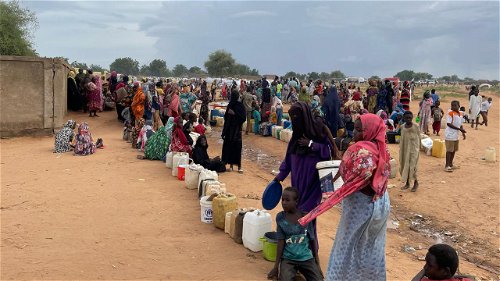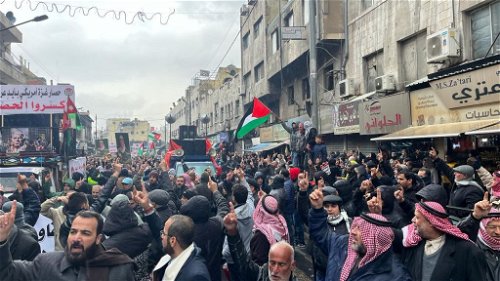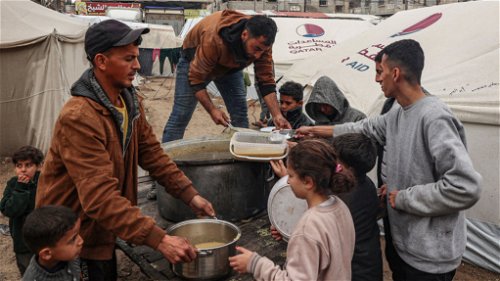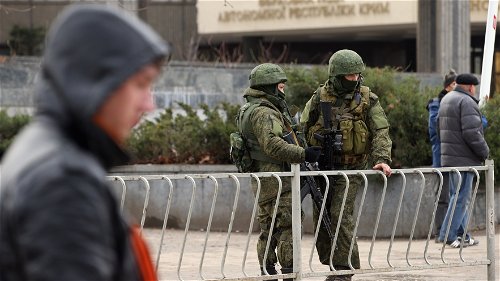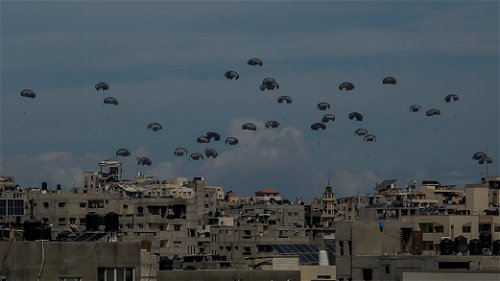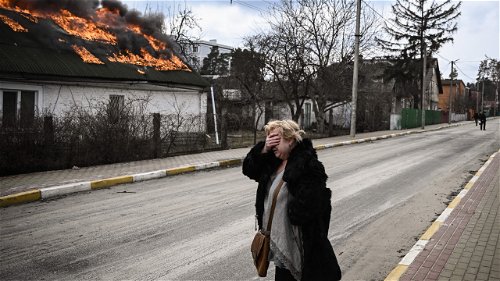
Zuid-Ossetië: burgers moeten beschermd worden
Amnesty International vraagt aan alle partijen die betrokken zijn bij het conflict in Zuid-Ossetië om het internationaal humanitair recht te respecteren zodat burgers gevrijwaard blijven van geweld. Ook in andere regio's zoals Abchazië moeten burgers beschermd worden.
"Geen enkele strijdende partij mag directe aanvallen op burgers uitvoeren. Er moet altijd een onderscheid gemaakt worden tussen civiele en militaire doelwitten. We vrezen dat er momenteel oorlogsmidaden begaan worden in Zuid-Ossetië," zegt Amnesty International. "Georgië en Rusland moeten vluchtelingen een veilige doorgang bieden en humanitaire hulp doorlaten in de getroffen gebieden."
Background to International Humanitarian Law
All parties to the conflict must comply with principles of international humanitarian law which are binding on states and non-governmental armed groups. Key among these is the principle of distinction between civilian and military targets, and the protection of civilians. Direct attacks against civilians or non-military objects are prohibited. Also prohibited are indiscriminate attacks which do not attempt to distinguish between military and non-military targets, or which use inherently indiscriminate weapons. Disproportionate attacks are prohibited too which, while aimed at a legitimate military target, but have a disproportionate impact on civilians relative to the military objective.
Parties must take measures to protect the civilian population from the dangers arising from military operations - this includes not locating military objectives among civilian concentrations. Civilians must have access to humanitarian assistance, and humanitarian agencies must be allowed access to the civilian population. All prisoners, the wounded and those seeking to surrender, must be treated humanely - prisoners must never be killed or held as hostages. Anyone responsible for grave breaches of international humanitarian law should be brought to justice in a fair trial, and reparations should be provided to the victims of such violations.
Background
After months of increased tension, and recent low-level hostilities, the conflict between Georgia and the breakaway region of South Ossetia escalated in the early morning of 8 August 2008 into the most serious confrontation since the civil war between the two was concluded through a truce in 1992. The ceasefire agreement included the establishment of a tripartite peacekeeping force, with Russian, Ossetian and Georgian peacekeeping battalions. Georgian troops launched what appears to have been a coordinated military offensive against the capital of South Ossetia, Tskhinvali in order to "restore constitutional order". Russian President Dmitry Medvedev responded by sending further troops backed by tanks to reinforce those already stationed in South Ossetia as part of the ceasefire with the stated aim to re-establish the status quo.
Georgian and Russian forces then engaged in what was reported to be fierce fighting in and around Tskhinvali, with Georgia reporting on 10 August that it had then pulled back its forces from Tskhinvali and South Ossetia itself to positions to the south of those held before the current hostilities began. According to reports later that day, Georgian had ordered its forces to cease fire. Heavy civilian casualties have been reported, but remain difficult to independently verify. Russia is also said to have bombed Georgia's Black Sea port of Poti, and the town of Gori, which lies just to the south of the disputed region and houses three Georgian military bases – again with civilian casualties.
Thousands of people are said to have fled the area, including across the border into the Russian republic of North Ossetia. Both the Russian and Georgian sides have reported dead and wounded among their troops involved in the conflict.
